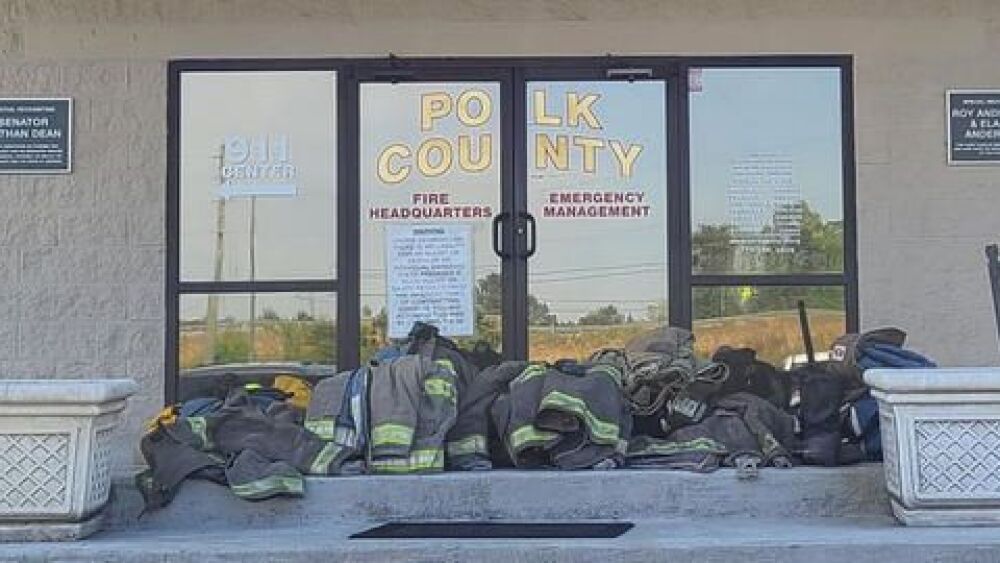All 12 members of a volunteer fire department quit because of disputes about funding and restructuring within the department. Another entire department in a different state resigned over emergency response protocols. In yet another state, most firefighters quit when a once-convicted arsonist was appointed as chief of department.
What’s going on here?
There is never just one reason why individuals or groups take drastic and dramatic action. Every story has multiple sides and points of view that are rarely represented in a brief news story. But it does seem like something is going on that is worth looking into further.
Such stories are not anomalous given the current trends and mood among workers in the United States today. Every employer is aware of the phenomenon known as “The Great Resignation,” where workers in a wide variety of professions have simply quit their jobs and moved onto something else. There has also been a national uptick in labor organizing efforts, such as among Amazon warehouse workers and Starbucks employees.
Looking beyond wider trends, each incidence of mass resignation has its own story. In one case, firefighters quit to protest their removal as medical responders in their community. Town officials stated that part of the reason for the change was that firefighters did not have proper certification to do medical response, but there was also a financial aspect to the decision as it could possibly save money for the town.
Then there’s the case where the once-convicted arsonist was appointed chief, after serving as assistant chief since last summer. As a firefighter with that same department 20 years ago, he was convicted of two counts of arson (he was later pardoned by the governor). Current members of the department were among those who responded to those two structure fires decades ago. The new chief is also the son of the mayor and county emergency management director.
Many questions come to mind: If the town wants its firefighters to be EMT certified, why isn’t it paying for this to happen? And how did a convicted arsonist become an assistant chief without major backlash? There is obviously a lot of history in all these cases that builds to the ultimate resignation. This is evidenced by continued in-fighting on one department involving allegedly stolen helmets and mismanaged funds.
Volunteering essential work
The COVID-19 pandemic has taken a terrible toll on people in this country and around the world. But there has been one good effect from the past two years, and that is the recognition of who is really an essential worker. Being essential is less about occupying the corner office than it is taking care of necessary business on a day-to-day basis, whether as a grocery clerk, garbage collector, teacher, nurse or as a first responder. And what might be happening in these recent resignations is people asking on some level: If we’re so essential, why aren’t we being treated better? And why isn’t anyone listening to us?
Most (but not all) of recent resignations among fire departments have involved volunteers. It is important to remember that volunteers are just that, people who are giving of their time and energy to serve their communities. One person who commented on one of these recent stories implied that by resigning, these firefighters are abandoning their communities. On the contrary, as volunteers they have been committed to serving their communities when others do not step up. And now they are questioning that commitment.
Nobody works for nothing. People who are paid for their work expect to be paid fairly. People who volunteer get other compensation for their work – opportunities for training or self-improvement, personal satisfaction in helping others, the respect and regard of community members and leaders. If volunteer firefighters feel their efforts are not supported and appreciated, if they feel disrespected and unheard by those with power to make decisions, if they feel that decisions are being made for financial reasons that endanger themselves or members of the public, well, then they are likely to go find some other opportunity to help others and serve their communities.
Resolving conflict
When mass resignations occur, the media tends to treat them like sudden, impulsive actions. They almost never are. There is always a history of unresolved conflict and poor communication. There are always many opportunities to do things differently, find compromise, reach better understanding, before people finally just quit. It is a leadership imperative to find these opportunities and work to find better ways to resolve conflict.
When people quit en masse, it benefits no one, most especially the members of the community who trust their first responders to do better.













